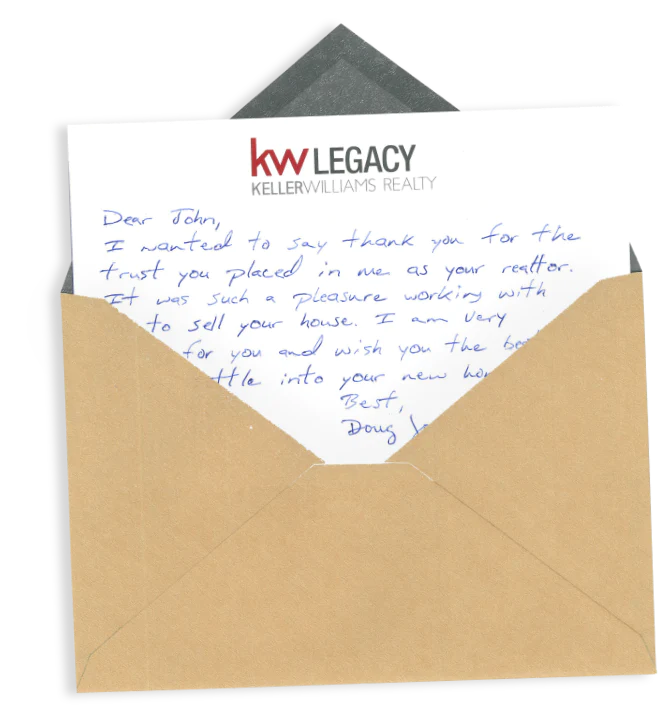Increase Your Revenue With These Proven Home Care Marketing Strategies

Increase Your Revenue With These Proven Home Care Marketing Strategies
For your home care business to stay competitive and successful, having effective marketing strategies tailored to the target market is essential. Understanding different demographics’ preferences for online and traditional advertising should be considered when formulating an action plan that will lead to success with these specialized home care marketing efforts. Optimizing campaigns based on key elements, such as implementing up-to-date trends, can provide a boost needed for any successful venture focusing on this expanding industry.
Key TAkeaways
- Understand your target market and identify their needs to create tailored marketing strategies.
- Leverage online & traditional methods, referrals, partnerships & expert sharing for increased brand exposure.
- Monitor KPIs to measure the success of home care marketing efforts and adjust strategies accordingly.
UNDERSTANDING YOUR TARGET MARKET
When planning for the success of your home care business, it is essential to understand who will benefit from its services. This typically includes individuals with disabilities and elderly people, as well as those recuperating from illnesses. By getting a good grasp on this target audience, you can focus marketing efforts accordingly to increase client referrals.
With predictions stating that the industry shall experience a 54% growth rate over 2026, ensuring ample investment into these operations within local communities is paramount in guaranteeing financial stability.
Delivering an enjoyable customer experience plays a major role when promoting home care: existing customers, such as current or both current and past clients, must be catered to maintain loyalty while also gaining new ones. It would seem evident how vital comprehensive attention towards aspects related to health care marketing should be given due consideration if one intends their venture’s longevity and prosperity down the line.

Demographics and Preferences
Home care providers must focus on family caregivers, clients using the service, and referral sources such as health professionals and senior support groups. Home health agencies provide essential assistance for around 70% of people accessing home healthcare services - mostly individuals aged 65 or older (60.9% female. 76.1%) being non-Hispanic white in ethnicity – so target audiences must be identified concerning age groupings, locations serviced and medical conditions met by your home health agency.
An understanding of demographics/preferences can help you hone a successful marketing strategy accordingly, which should reach out effectively to potential customers via referrals from local sources like medical personnel & elderly assistive organizations, etc.
Identifying Needs
Identifying potential customers' needs is crucial in providing services catering to their specific demands. Gather market intelligence through surveys of existing and possible consumers and analyze industry trends for a better understanding of the requirements of prospective clients.
Take advantage of this info to come up with offerings that suit those needs exactly and formulate marketing plans that reach out to the relevant audience.
BUILDING A SOLID BRAND IMAGE
For a home care business to succeed, an effective brand is key. This includes crafting a unique logo and website as well as producing promotional materials that will help the agency stand out from its competitors and draw attention from potential customers.
It’s also essential for all marketing efforts to maintain uniformity so that everyone who engages with it knows what message they are receiving, which leads them closer to trusting the company down their customer journey. Having this unified language and tone across all communication channels gives off an unmistakable familiarity, making your business easily recognizable when clients require assistance within the home care industry.

Logo and Visual Identity
Creating a lasting impression on potential customers and gaining their trust requires an impressive logo and visual identity. To achieve this, it’s essential to have simplicity, memorability, and recognizability in your designs. Here are some steps that could help.
Think about the intended audience of your brand message before crafting the visuals, choose colors and fonts appropriate for industry standards, and develop logos plus accompanying identities that match up with what you’re trying to promote. Integrate them into all promotional and marketing materials to unify your brand recognition across different tactics and social media platforms.
Consistent Messaging
Home care businesses need to have a consistent message throughout all their marketing efforts, between current and existing clients so they can build trust with potential customers and set themselves apart from competitors. To achieve this, it is key that there is an established brand identity coupled with unified language and tone across all marketing channels.
When doing so, core values should be upheld, too. Likewise, using the same visuals like logos & colors will help create uniformity to boost recognition of the company along with client loyalty & satisfaction levels, which ultimately provides ways to measure the effectiveness of the messaging strategy employed here.
IMPLEMENTING EFFECTIVE ONLINE MARKETING TECHNIQUES
Reaching a larger target audience and connecting with potential clients is possible by implementing efficient digital marketing strategies. Home care businesses can use various social media marketing platforms, search engine optimization (SEO), pay-per-click advertising, local listing campaigns, and emailing to strengthen their presence in the online market.
SEO also helps homecare marketers establish higher rankings on internet searches, leading to increased visibility for business growth opportunities. Review generation activities combined with Facebook ads are beneficial techniques that help direct visitors toward your website or page and deliver timely promotional messages via remarketing efforts from various resources used by people interested in home care services/products you offer.

Social Media Presence
Home care providers should foster a strong presence on social media sites like Facebook and Instagram to attract potential clients and showcase their services. It is beneficial for them to present professional visuals such as photos, illustrations, graphics, and videos, which can attract more attention when disseminating information about homecare offerings. Connecting with leads through LinkedIn might also be advantageous since it serves as an effective means for introducing prospective referral partners while providing pertinent health-related content at the same time.
Search Engine Optimization (SEO)
Optimizing for relevant keywords is a crucial element of home care marketing, as it helps draw in prospective customers. To do this successfully, comprehensive keyword research must be conducted since no one expression covers all that can fall under the ‘home care services category.’ SEO techniques such as boosting website visibility and creating an effective Google My Business profile will make your business more visible on search engine results so potential clients can find you more easily.
Pay-Per-Click (PPC) Advertising
For home care business owners, investing in Google Ads and other digital advertising channels like social media campaigns and display ads can open up new potential leads. Using the precise targeting options available on the Google Ads platform allows businesses to reach people likely interested in their services. Costs for each lead range from $90-$150, with an expected close rate of 25%-30%. With a well-executed PPC strategy, these targeted leads help drive conversions and increase visibility online.
TRADITIONAL MARKETING METHODS STILL WORTH PURSUING
For home care marketing, using traditional media, such as local newspapers, for advertisements can be quite beneficial. It builds trust in your business and allows you to connect with potential clients who may prefer these more conventional forms of communication and set yourself apart from other providers. Investments in mediums like television or radio commercials won’t necessarily bring immediate results. They are crucial to successful branding over time and should be included in marketing efforts.

Handwritten Direct Mail Campaigns Using Simply Noted
Simply Noted’s handwritten direct mail campaigns provide a highly personal touch and can be an extremely effective way to connect with potential customers. Through individualized postcards or letters sent through the regular mail service, these efforts can establish trust between businesses and their target market while also bringing in more referrals from clients who feel they are receiving special attention.
Your cards are "handwritten" by a fleet of the most advanced handwriting robots in the world, producing results indistinguishable from the real thing. By offering this unique method of communication, companies stand out for providing that extra bit of care that resonates with people today.
Print Advertising
Advertising in local newspapers and magazines is a great way to raise brand awareness for potential clients who lean toward traditional media. When creating an ad that will be effective in local publications, it’s essential to keep the messaging clear and concise while still staying true to your overall branding identity. As well as include necessary contact information. Visuals should be eye-catching for readers of these types of media outlets. By taking advantage of print ads, you can tap into those customers not found on digital platforms, too!
Community Outreach
Attending local events and supporting activities are great ways for home care providers to increase their visibility amongst potential customers. To do so, it is crucial to identify a suitable community event or engagement to reach your target audience. Participation in relevant social functions and sponsoring them can create a platform on which people come into contact with services related to home care.
Through involvement in such occasions, you show commitment towards providing excellent customer service while allowing members of the public an opportunity to become familiarized with what your caregivers offer through home health assistance.

LEVERAGING THE POWER OF REFERRALS
A successful home care business should capitalize on the potential of referrals to expand its client base. Developing relationships with current clients and offering incentives for them to recommend your services is a surefire way of generating more leads, which can increase new customers in the long run.
Yet, developing a referral system takes time and requires resources within the company. You must hire qualified caregivers with proper training to acquire reliable customer recommendations. Creating an affable workplace culture also helps ensure excellent service, thus increasing the chances of getting positive client references from others interested in your home care agency’s offerings. Delivering superior yet dependable assistance will most certainly be rewarded with steady referrals – leading inevitably towards growth for your homecare venture!
Building Relationships with Clients
Close connections with customers can produce favorable word-of-mouth endorsements and increase trust in your home care services. Building such relationships involves personalizing interactions, delivering superior service, appreciating clients, keeping them informed of updates or changes related to the business, listening attentively to feedback, and responding accordingly; all these efforts will be rewarded through a long list of devoted clients who return time after time and refer you on.
Establishing effective client relations allows for open communication, which results in customer satisfaction thanks to getting information regarding ways that products or services may improve their overall experience with home care.
Incentivizing Referrals
Offering incentives such as discounts or rewards can prompt existing customers to recommend your business. Possible motivations include discounted prices, complimentary products/services, loyalty points, and gift cards.
Incentivizing referrals has various potential benefits. For example, they may help you extend the reach of your services by increasing customer numbers and thus profits via improved conversions compared to other marketing methods. It could strengthen customer commitment towards your brand and deepen their relationship.

COLLABORATING WITH LOCAL HEALTHCARE PROVIDERS
Creating alliances with healthcare professionals is an excellent way for home care providers to establish beneficial partnerships and share their expertise, resulting in additional referrals and business growth. Networking events, educational seminars, and pertinent resources are all powerful tools that can help connect with the local community of health practitioners while providing more prospects along the journey. By joining forces and exchanging vital knowledge with one another, the homecare industry has the potential to benefit from an increase in clientele through amplified referral channels.
Establishing Partnerships
Relationships with healthcare providers, like doctors and hospitals nearby, can lead to more business referrals and a more significant customer base. Establishing ties with these experts can be done by participating in network meetings or community events, delivering educational lectures, or providing helpful materials.
By connecting local businesses and hospitals alongside the other professionals already mentioned, you can share knowledge, which could mean additional customers for your company’s growth.
Sharing Expertise
One way to develop trust and credibility among healthcare providers is to share your expertise. Educate professionals through seminars, supply beneficial resources, and involve yourself in collaborative research studies to demonstrate home care proficiency within the industry. These actions can create strong relationships between you and other home health care agencies and personnel while maintaining the integrity of your home health care agency.

MEASURING THE SUCCESS OF YOUR HOME CARE MARKETING EFFORTS
Monitoring Key Performance Indicators (KPIs) gives home care providers an effective way to evaluate the success of their marketing efforts. It helps them identify areas for improvement and optimize strategies to get better results from campaigns, such as conversion rate, Return on Investment (ROI), social media engagement, reach, etc. KPIs are extremely useful for tracking progress and obtaining customer feedback about marketing initiatives. Thus, assessing performance allows business owners in this industry sector to understand better how successful their activities have been.
Identifying Relevant KPIs
Selecting key performance indicators (KPIs) relevant to the home care provider’s goals is fundamental for evaluating the success of marketing campaigns. Consider metrics such as conversion rate and return on investment when targeting increased revenue generation, then monitor their progress utilizing analytics software like Google Analytics to determine potential improvement areas.
Analyzing Results and Adjusting Strategies
It is vital to analyze collected data and adjust strategies accordingly to enhance marketing initiatives and increase efficiency for home care providers. There are several ways of obtaining this information: surveys with customers can provide insight into their opinions, website analytics enable the tracking of user patterns, and sales reports give an understanding of what people prefer.
With these analyzed findings, modifications should be made when applicable, such as campaign adjustments, offering more product variations, or even different pricing options To improve customer service standards. There may exist untapped potential markets that could also benefit from being explored On top of existing ones already catered towards.
Overall, leveraging acquired insights will allow companies within the field greater success across various levels by making informed decisions backed up by research, giving them a competitive edge over others operating within similar spaces.

Summary
By employing successful home care marketing strategies in 2023, businesses can reach a broader customer base and increase growth. This is accomplished by understanding who you are trying to target, setting up a strong brand image through traditional or online promotion methods, and cultivating relationships with clients and local healthcare professionals.
It is crucial to evaluate the effectiveness of your efforts often. Adjusting techniques accordingly will help maximize results from these care marketing strategies for tremendous success within this industry’s home care business.
Frequently Asked Questions
How do I market my home healthcare business?
To successfully market your home healthcare business, you should create social media accounts and list the agency on relevant industry sites. It’s worthwhile spreading the word about what you do via personal networks. Taking advantage of well-ranked sources like Caring.com or SeniorAdvisor will help develop a sense of trust with customers.
What is homecare marketing?
Home care marketing aims to gain the attention of potential clients and their families to increase awareness of home care services. By targeting a specific audience, this type of advertising can help boost exposure to these critical home health care services-related offerings.
How do you market to carers?
Offer tips to solve everyday challenges, provide essential knowledge and skills through expert blog posts, and connect with them in condition-specific forums to market to caregivers effectively.
What are the 5 P's of healthcare marketing?
Successful healthcare organizations recognize the importance of utilizing the five P’s: Product, People, Place, Price, and Promotion. All these components are essential to ensure their customers remain loyal by providing them with a practical and tailored experience.
What are the primary audiences for home care providers?
Home care providers typically interact with three primary audiences: family care coordinators, clients, medical professionals, or senior service organizations. These entities can rely on homecare personnel to provide quality services to their patients/clients.























